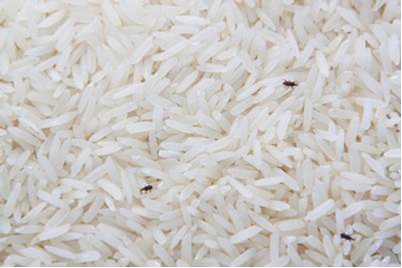Influenza in Animals
Animal influenza viruses can be of significance to public health due to their potential to spread to humans from animals, i.e. zoonotic infections. Examples of such viruses include certain strains of avian influenza (commonly known as bird flu) and swine influenza (swine flu).
Outbreaks of bird flu are reported on poultry farms around the world every year, particularly during colder seasons. Swine flu is also common throughout pig populations worldwide.
In this article, we look at bird and swine flu, and their significance in food safety.
What is bird and swine flu? Can they infect humans?
Bird flu* and swine flu are respiratory diseases in birds and pigs respectively. The spread of these diseases between animal populations depends on factors such as the international trade of live poultry/pigs and poultry/pork products, as well as the migratory routes of wild birds.
While most bird and swine flu viruses can only infect animals, some types – such as the H5N1 bird flu strain – can be transmitted to humans who have very close contact with infected live or dead birds/pigs, or their feces and mucous containing the virus (e.g. farmers, slaughterhouse workers etc.).
Symptoms of bird and swine flu infections in humans resemble those of the conventional flu in humans, such as cough, fever, sore throat and muscle ache.
Can bird and swine flu spread to humans through food?
Heat treatment deactivates the influenza viruses. To date, there is no evidence that bird and swine flu can be spread to people through the handling or consumption of thoroughly cooked poultry meat, eggs or pork.
Studies have shown that certain strains of bird flu can spread to all parts of an infected bird, including its meat. Infected birds can also contaminate the inside and outside of their eggs. This means that there is a risk that those who handle or consume contaminated raw poultry meat and eggs can become infected with bird flu.,
In contrast, as swine flu is confined to the respiratory tract of pigs, there is currently no evidence that swine flu can be transmitted to humans via the handling or consumption of raw pork.
What is being done to ensure that Singapore is safe from bird and swine flu?
As animal influenza viruses can impact public and animal health, as well as cause trade disruptions, SFA continually monitors animal influenza outbreaks across the globe. SFA also works together with the Animal & Veterinary Service (AVS) cluster under the National Parks Board to protect Singapore from these viruses.
To mitigate the risk of incursion of bird flu, SFA works with industry to put in place the following measures:
Import control: SFA requires accredited countries exporting live poultry, raw poultry meat and eggs to Singapore to be free from the virus. These countries must also have biosecurity and control measures in place which are in line with guidelines and standards from the World Organisation for Animal Health (OIE), such as disease surveillance to ensure any bird flu outbreaks are promptly detected. In the event of a bird flu outbreak, SFA suspends the import of live birds and raw poultry from the affected country or region. Live poultry imported into Singapore for slaughter are also inspected at import before they are sent to local poultry slaughterhouses.
Control in local farms and slaughterhouses: Local poultry farms must also have biosecurity measures (e.g. to prevent wild birds from coming into contact with their poultry flocks). These conditions are based on scientific evidence and take reference from guidelines and standards from OIE. SFA inspects local poultry farms and slaughterhouses, as well as test imported live poultry and poultry in local farms for avian influenza.
As there is currently no evidence that swine flu can be transmitted to humans via the handling or consumption of raw pork and given its low impact on human and animal health, SFA does not require countries exporting pigs and pork to Singapore to be free of swine flu.
Nevertheless, SFA accredits the sources which can supply these to Singapore. Two pig farms located at Pulau Bulan, Indonesia, and Sarawak, East Malaysia are Singapore's only sources of pigs. Imported pigs are inspected at import before they are sent to local slaughterhouses.
What can I do to minimise the risk of contracting bird and swine flu?
Although the risk of transmission of bird and swine flu to humans via food is low, here are some practices that consumers can adopt to keep themselves safe:
Avoid contaminating ready-to-eat or cooked food with raw poultry and pork products
Cook poultry and pork products thoroughly. Eggs should be cooked till they are hard and firm (not runny).
Always wash hands with soap after handling raw poultry and pork products.
Avoid contact with wild birds, live poultry and pigs when overseas (e.g. wet markets where poultry are slaughtered, cafes with live animals present).
*The World Organisation for Animal Health (OIE) officially defines avian influenza as the infection of poultry by avian influenza viruses with high pathogenicity or by H5 and H7 subtypes with low pathogenicity, which would lead to respiratory diseases in birds. A virus is considered highly pathogenic (HPAI) if it causes severe symptoms and/or a high death rate, and low pathogenic (LPAI) if it causes only mild or no symptoms in birds.



